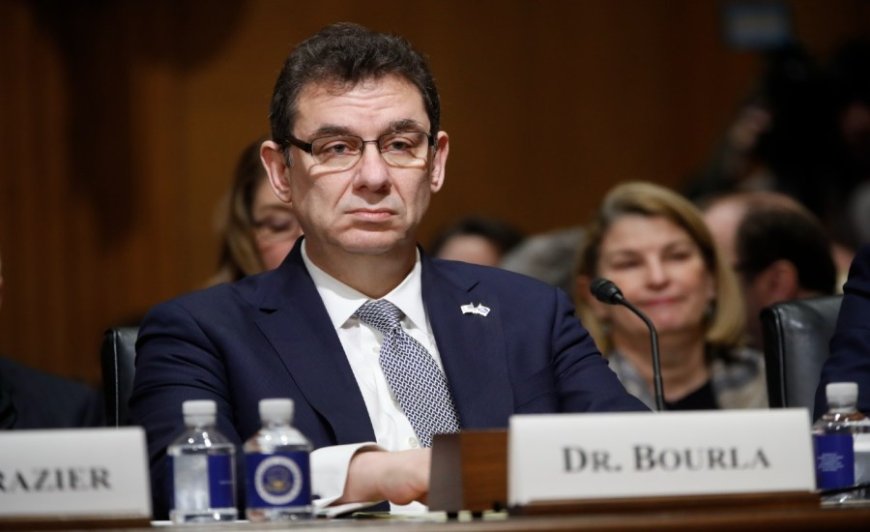The comments from executives suggest the price cuts won’t be as steep as many in the industry initially feared.
But the executives were still adamant Medicare price negotiations under the Inflation Reduction Act (IRA), which officially ended last week, will throttle innovation in the long run and expressed hope that a new administration — or industry lawsuits — will end the policy.
The IRA law “is a very big loss for innovation and for the crown jewel of American industry, which is the life science technology business,” Pfizer CEO Albert Bourla said during an earnings call last week. “But it is what it is. It is the law of the land. And we are doing our best to make sure that we minimize any impact, particularly in the future.”
“Now that we have seen the final price, we’re increasingly confident in our ability to navigate the impact of IRA on Eliquis,” Chris Boerner, CEO of Bristol Myers Squibb, said during a July 26 earnings call.
Eliquis is BMS’s blockbuster blood thinner, with a $594 a month list price. Medicare spent nearly $16.5 billion on it between 2022 and 2023, according to the Biden administration, more than any other prescription drug.
Still, Boerner maintained the industry position that price negotiation is unlawful government price-setting. “We continue to believe arbitrary price setting by the government on lifesaving medicines is not good public policy, so irrespective of short-term dynamics we remain very concerned about long term impacts of IRA on innovation,” he said.
The companies that manufacture the 10 drugs eligible for price negotiations have been exchanging offers with the federal government since February. The settled prices will be publicly announced by Sept. 1 and will take effect in 2026.
The first 10 drugs selected for negotiation accounted for $3.4 billion in out-of-pocket costs for an estimated 9 million Medicare enrollees in 2022, according to the Biden administration.
What’s next: Several drugmakers, as well as the leading industry group PhRMA and the U.S. Chamber of Commerce, sued the Biden administration to block enforcement of the price negotiation provision.
Most of the lawsuits have been unsuccessful, but PhRMA filed an appeal of its lawsuit in the 5th U.S. Circuit Court of Appeals, considered to be one of the most conservative in the country that has a history of ruling against the Biden administration.































































